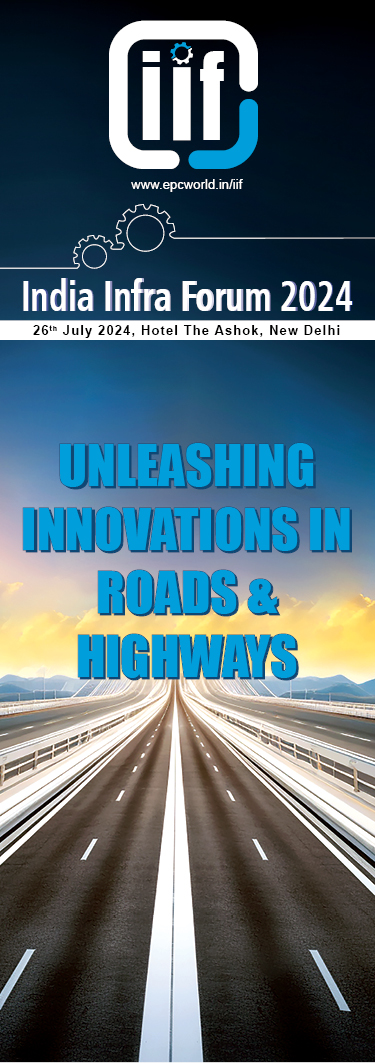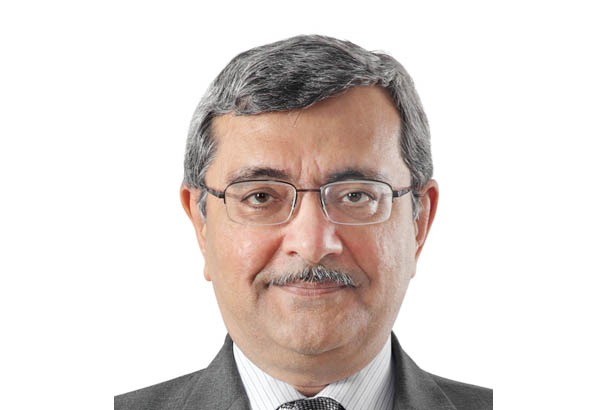CSR activities have the potential to bring in positive changes in the lives of the deprived section of the society and the government has acknowledged it and has brought in various amendments to make CSR accountable, but still, it lacks teeth, if we go by Reports. Your comments
With the 2% spend requirement being made mandatory for companies, CSR does provide a huge opportunity for Corporates to bring in their execution expertise, goal orientation and agility to the development sector. This has the potential to change the developmental ecosystem positively. The recent amendments bring more accountability to CSR and provide a good direction. However, it is desirable to ensure that CSR retains its intrinsic value of responding to the needs of the underserved and does not become a compliance driven activity. In L&T’s case, we have always been involved in positively impacting people’s lives and always exceeded the stipulated spend requirement.
The going Pandemic has devastated livelihood and has left the vast majority in penury. What are your CSR activities in the Pandemic period to alleviate the suffering of the have-nots?
For an infrastructure company like L&T, the pandemic and the lockdown first hit its 1,60,000-strong workforce in its project sites. The Company committed Rs 500 crore per month towards uninterrupted payment of wages, food, medical care and transport. As a natural continuation of this philosophy to reach out to the most vulnerable, L&T decided to not only donate Rs. 150 crore to the PM CARES Fund but also to quickly respond in kind to meet critical need gaps both on an immediate basis and as a long-term resilience building measure.
The L&T Group companies came together to additionally mobilize more than Rs 36 crore to meet immediate requirements of a frontline force that was gearing up for a combat to save as many lives as possible. The leadership felt it was equally important to augment the health infrastructure as far as possible in the early days. This exercise was carried out at lightning speed within the first few weeks of the declaration of the pandemic.
Our immediate response to need for protective equipment, testing kits, medical supplies and food reached beneficiaries across 12 states. N95 masks, PPE kits and indigenous Covid-19 test kits that could detect the infection in flat 2.5 hours were among medical supplies provided. More than 2.5 lakh meals were provided to stranded daily wage earners and health workers during the initial days of the lockdown, 11,000 kgs of rice was distributed. Almost 5,000 grocery kits have been provided to families. Additionally, dry ration was provided to children to ensure nutrition as substitute of cooked meals provided by Balwadis and Anganwadis.
The augmentation of health infrastructure through supply of critical medical equipment such as ventilators, patient monitors, dialysis machines, oximeters, CT scan and ECG machines, fowler beds and other medical apparatus in hitherto under resourced designated Covid-care centres well before the cases started to grow across locations has enabled them to deal with the current influx of patients requiring critical care. Provision of robotic nurses and CT scan machine in a shielded box to hospitals not only helps protect hospital staff, but it also creates a culture of trust in technology as an aide in combating such a crisis.
Needless to say, all the above have also built the capacity of hospitals to deal with such health emergencies in the future should they arise. Further, to step up testing in some of the most populous Indian states of Uttar Pradesh, Bihar and West Bengal, L&T drew on its expertise as a leader in design and construction to rapidly set up BSL-3 laboratories in Gorakhpur, Madhepura and Diamond Harbour for Covid testing which will stand these states in good stead for control of highly infectious diseases in the future.
When we say CSR activities it is quite often assumed some noble activities in tribal and rural areas. What are the CSR activities you conduct for the deprived people in the urban areas?
In view of L&T’s size, businesses, area of operations and national footprint our CSR activities aim to address the entire gamut. Our primary focusis on the most underserved segments around our areas of operations as well to reach out to rural communities which otherwise are at a risk of getting little attention from any other programme. A significant number ofour initiatives are located within communities around our campuses, some of which are situated in urban areas. We have several initiatives in Education and health and skilling in metro cities such as Mumbai and Chennai.We run over 100 balwadis and afterschool support classes for children in slums and public parks. Our 12 health centres are in cities such as Mumbai, Thane, Chennai, Vadodara, Coimbatore, Surat and provide access to quality health care including dialysis facilities for the underprivileged. Similarly, all establishments across the country have CSR work ongoing around them. Key factor is addressing the pressing needs of our neighbourhood, as well as reaching out to the areas that are really in need.
Time and again the government has introduced welfare schemes - be it last mile connectivity, clean drinking water, power for all, healthcare, employment & education schemes, self-reliant, skill development - to uplift the tribals and rural citizens of the country. How are you aligning your CSR activities with government initiatives for better benefits?
L&T takes pride in being a national company while our products and services are aligned with the National priority sectors such infrastructure, power,which contribute directly to the development and welfare of the nation. Our CSR programmes too are aligned with the developmental challenges faced by the nation and mapped with the United Nations Sustainable Development Goals (SDG). The capacity of an organisation to scale its CSR programme is limited, however a collaboration with the government machinery will have a multiplier effect on the efforts. Keeping this in mind, L&T CSR has collaborated with government to ensure synergies and avoid duplication. As a practice we take up projects that address gaps. In one of our Integrated Community Development Programs at Bhim, Rajsamand district, Rajasthan, while drinking water tanks were constructed by CSR, the pipelines connecting them to water sources were provided by the local Gram Panchayat. In few project locations, approach road has been constructed by government initiatives under NREGA (The Mahatma Gandhi National Rural Employment Guarantee Scheme) through convergence.
In the recent years, renewed target of government programs on sanitation through Swachh Bharat have brought about a sense of urgency to the sanitation initiatives, thus enhancing the effects of sanitation programs. Over the last few years, we have constructed over 3700 individual sanitation units and 500 school toilets with a view to making entire villages open defecation free. At many an instance the toilets have been constructed through L&T’s efforts for the underprivileged and sensing the momentum the community itself has constructed the remaining toilets to ensure that the community becomes open defecation free. The programme has been further augmented through the awareness and behaviour change initiatives of the local government.
Please take us through your collaborations with NGOs and other players to provide better CSR to the target audience?
At L&T, CSR, program implementation is done directly by the company in projects where there is in-house expertise relating to the said project and in collaboration with NGO partners having specific skill set and community engagement. A significant part of the skill training programs in construction and allied skills, where L&T has the core expertise is directly conducted by L&T. This enables the trainees to access, updated and latest industry specific training. Programs like the watershed interventions are implemented in areas where that are severely water stressed are executed in partnership with NGO’s since they are in remote locations and require very close interaction with the community over several years. Some of our partners during the past year are Dhaan Foundation, Seva Mandir, WOTR, American India Foundation, Pratham Education Foundation, Bhumi, and several more. These organisations provide the much-needed local expertise added with the technological and innovative inputs from the L&T team to make programs complete in all aspects. We conduct due diligence of all partners covering financial management, governance and internal control program management and downstream partner due diligence. This helps to ensure optimum implementation of the program.
Can you brief about the regulatory changes that have taken place in recent years and how it is benefitting / affecting your CSR activities?
Several amendments to the CSR regulations have come in, the most recent one being in January 2021. The amendment is welcome since it provides an avenue to carry forward excess CSR spends above the mandated amount as well as gives flexibility of additional time to spend in cases where projects cannot be completed within the time frame of a year. It also provides for assessment of social impact which is critical to evaluating the effectiveness of the activities undertaken. At L&T we have been consistently exceeding our spend requirement and have been proactively conducting external impact assessments of our projects since the inception of the CSR as a set good governance practice. While the amendments will streamline CSR implementation, it is also important for companies to have ample flexibility and scope for innovation.
How are you leveraging technology to get your noble CSR activities done effectively and, in a time, bound manner? Can you share some instances with us?
L&T being an engineering and technology company, innovation and use of technology are at the core of CSR activities undertaken and cuts across all our thematic areas of Education, Water & Sanitation, Health and Skill Building. This helps to retain core competence of the organization while designing CSR projects. We undertook a strategic shift in 2018 which placed special emphasis on technology as an underlying basis for each thematic area. STEM (Science, Technology, Engineering, Mathematics) was taken up as part of education. Since the past 2 years, STEM has slowly grown into a flagship project with expansion across the country.
Innovation and technology are utilised in key aspects of program implementation. At CSTI (Construction Skills Training Institute) Kancheepuram, a bar bending simulator helps to reduce training time; improve practice; reduce wastage of raw materials during practice and training sessions. Currently we are digitising all skilling course material so that students can access from any location on platforms such as their mobile phones.
In the watershed projects, use of scientific methods to measure ground water recharge eg, GIS (Geographic Information System) mapping, automatic weather stations that provide localized weather and crop advisory to farmers, use improved drought resistant varieties of seeds, promotion of scientific techniques such as participatory varietal selection etc. ensure that low cost, locally relevant technology and innovative is deployed in programme execution.
In the next three years, how are you planning to take your CSR initiatives forward?
We have a CSR strategic plan in place which lays the path for progression in each of our thrust areas. With the changing landscape due to the pandemic and its socio-economic impacts we will focus further on digitization within our education projects as well as promote STEM related learning. Our skilling programme too will focus on digitization of learning and renewed vigor to attract and retain youth into the construction skills programme this is the need of the hour and has been underlined by our Prime Minister through the Skill India Mission.






